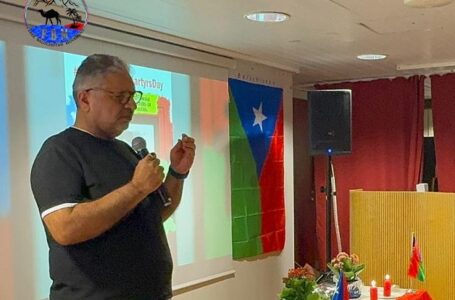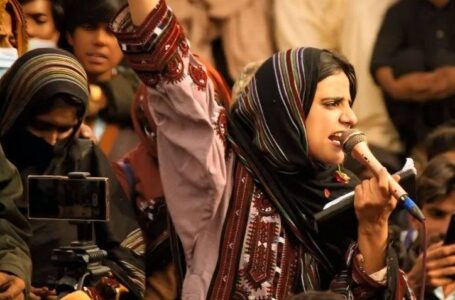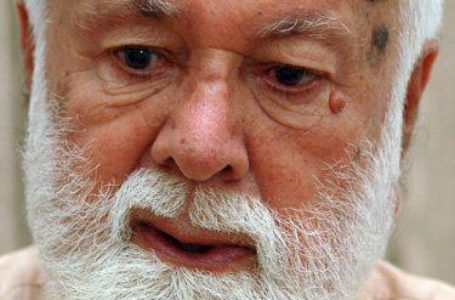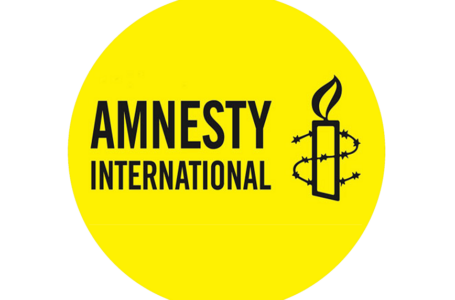Occupied Balochistan: A Chronicle of Genocide, Exploitation, and Resistance
Conditions in Baluchistan Akin to Bosnian Genocide: Fransesca Marino
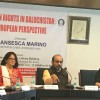
New Delhi, Nov 24, 2018: Pakistan has undertaken a genocide against the Baluch people in its restive Balochistan Province and conditions there are similar to the events in Bosnia said Francesca Marino, Editor in Chief, Stringer Asia, at a Seminar on ‘Human Rights in Balochistan: An European Perspective’.
Francesca Marino is an Italian journalist who has covered South Asia extensively. Francesca writes regularly for Limes-Italian Review of Geopolitics and some of the most prestigious Italian and Swiss media. She won the Italian journalism prize, Il Luigiano d’oro in 2010. Francesca is the Editor in Chief of Stringer Asia, an online magazine on South Asia, since 1995. She is also a respected photographer and has been published in international magazines including Geo. Her previous publication was India in 100 Immagini (2007).
The state-sponsored violence by Pakistan in Balochistan is not merely a human rights issue but it is a larger issue of war leading to the extermination of a culture said Marino, while addressing the gathering comprising academicians and researchers. She recounted her experiences in Pakistan and outlined the ways in which the Pakistani state has achieved this over the years. She traced the history of the occupation of Balochistan by Pakistan clearly outlining the way in which Pakistan took over an independent province in 1947.
The seminar was organized by the Asian-Eurasian Human Rights Forum (AEHRF) in collaboration with the Nehru Memorial Museum and Library on 24 November 2018.
Under British rule, Balochistan was divided into four princely states: Kalat, Makran, Las Bela, Kharan. The Khan of the biggest princely state, the state of Kalat, Mir Ahmad Yar Khan, respected his people’s sentiments and decided against a merger with Pakistan. The state of Kalat was declared independent on August 11, 1947, as the people of Kalat were completely against the idea of joining Pakistan. Kalat functioned as an independent democratic country for about eight months. Jinnah ordered the Pakistan army to invade and annex Kalat. The army forced/coerced the then ruler Ahmadyar Khan to sign a treaty of accession against the will of the majority. Ahmadyar Khan tried everything possible to prevent the accession to Pakistan.
Francesca Marino outlined the ways in which over the years Pakistani Frontier Corps and the ISI have brutally put down a peoples movement for independence in Baluchistan. Pakistan has been able to escape international condemnation over this issue because of Chinese support.
Citing her own case, Francesca explained that the Pakistani State bans the travel of international media to the province and hence horrors of mass graves, rapes and war crimes against the Baluch go largely unreported.
Alok Bansal of the AEHRF also addressed the gathering outlining ways in which Pakistan has tried to use radicalization and has sectarian conflicts in the region in order to deflect the Baluch insurgency. This strategy is similar to the one used by Pakistan since 1947 to dilute and deflect Pashtun restiveness and nationalism.
A lively question-answer session followed in which participants raised issues of the lack of support for the Baluch movement in SAARC and other international forums. Participants also discussed that in the aftermath of the assassination of Nawab Akbar Bugti the BalochJigra has already declared that its territories are no longer a part of Pakistan.
The seminar was chaired by Professor Kashinath Pandita who wound up the proceedings reminding the audience that the Baluch insurgency has historical roots in the aspirations for independence of the Baluch ethnic people. Pakistan is dominated by Punjabi Muslims who have oppressed all other ethnicities like the Baluch, Pashtun, Sindhis and Bengalis.
Courtesy: Indian Observer Post

